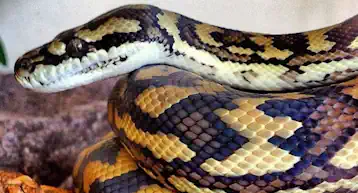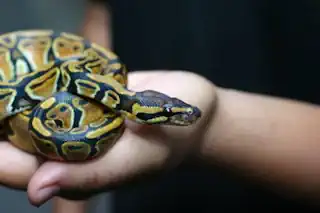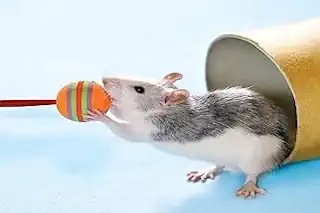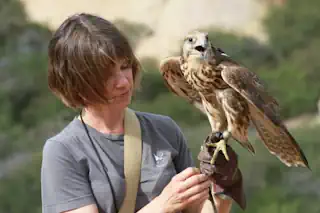Avoid These Foods: A Guide to What’s Harmful for Birds
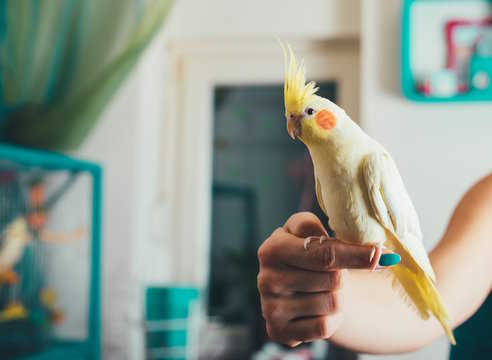
Welcome, feathered friend aficionados and wildlife allies! Are you a dedicated bird enthusiast with an avian companion of your own? Or perhaps you’re an empathetic soul who sees birds as nature’s delicate ambassadors, deserving of care and protection, even in their wild habitat. If you nodded along with either of those, this in-depth guide is just the flutter of knowledge your mindful feeding practices need.
Birds, with their striking plumages and joyful melodies, grace our skies and gardens, enchanting us with their presence. Ensuring birds around us lead a healthy existence is a joint responsibility that begins with something as simple as mindful feeding. Yet, as we well know, not all foods are created equal—what’s delightfully savory or refreshingly sweet to us might spell disaster for our beaked counterparts.
This long-form post is a comprehensive foray into the foods that you absolutely must keep away from our feathered friends. We’ll explore the insidious nature of some common human foods, their potential for harm, and viable alternatives that promote avian wellness. After all, a thriving bird community is a harmonious indicator of a healthier, happier habitat.
Without further ado, join our bird-friendly culinary expedition and spread the word (not the crumbs) to your fellow bird enthusiasts and pet owners.
Common Foods Toxic to Birds
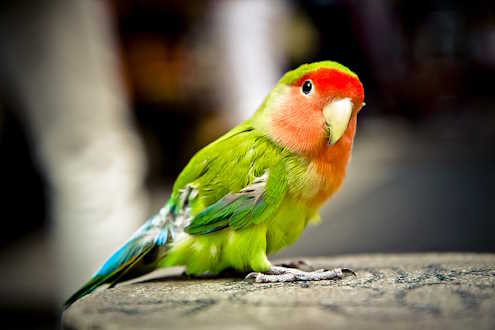
In the age of bird cafes and ornithological Instagram accounts, companion bird foods have gained a hash tagged constituency of top-tier awareness. Yet, even under the vigilant watch of their bird owners, some foods might sneak under the beak and into the avian diet, causing unintended havoc. Here are the top ten culprits:
The Top 10 Foods to Avoid Feeding Birds
Chocolate: Just as sweet as it may seem to share a bit of chocolate with your bird, this treat contains theobromine and caffeine, which can be toxic to birds, leading to severe health issues.
Avocado: The persin found in avocados can cause heart damage, respiratory difficulty, and even death in some bird species. It’s a no-go for our feathered friends.
Onions and Garlic: While a staple in human cuisines, onions and garlic can lead to anemia in birds by causing the rupture of red blood cells.
Caffeine: Beverages such as coffee, tea, and sodas that contain caffeine can be harmful to birds, leading to cardiac malfunction.
Alcohol: It goes without saying, but alcohol is severely toxic to birds, affecting their liver and brain – much quicker and more severely than in humans.
Xylitol: This sugar substitute found in sugar-free products can lead to a sudden drop in blood sugar, leading to loss of coordination and even seizures in birds.
Salt: Too much salt intake can lead to excessive thirst, dehydration, kidney dysfunction, and in severe cases, death.
Fatty Foods: Overconsumption of fatty foods can lead to obesity and liver disease in birds, much like in humans.
Apple Seeds: While apples are safe, the seeds contain amygdalin, a compound that releases cyanide when metabolized. Always remove them before sharing an apple with your bird.
Raw Beans: Raw or undercooked beans can contain hemagglutinin, which is toxic to birds. Ensure any beans given to birds are cooked thoroughly.
Understanding the potential risks is foundational for boosting our awareness and making the small, vital adjustments needed to keep our beaked buddies safe. Dairy products, seeds and pits, cooked beans and certain fruits may seem like a good choice but can be really bad for many birds. Birds love nuts and will eat them even if they are toxic foods.
Impact on Pet Birds’ Health
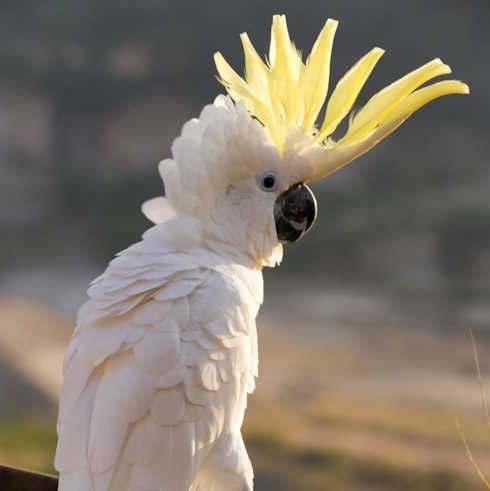
Unwitting consumption of these harmful foods can have a severe impact on the health of our bird friends, both wild and domesticated. Here’s a closer look at how these items can affect our avian companions:
Top 5 Symptoms of an Unhealthy Pet Bird
Caring for our feathered friends is much like looking after a family member—one needs to be attuned to their habits and health. Sometimes, it’s not the foods we intentionally offer but those accidental ingestions that can lead to health distress. To ensure your bird remains a vibrant and chirpy companion, here are the top five symptoms to watch for, indicating your bird might not be feeling their best:
Change in Droppings: Any significant change in the color, consistency, or frequency of droppings can indicate an underlying health issue. This is often the first sign that something’s amiss. A bird’s digestive system is very sensitive and sudden death can occur if we are not attentive.
Ruffled Feathers: While birds fluff up their feathers for warmth or relaxation, feathers that remain fluffed for extended periods could signal discomfort or illness.
Change in Appetite or Drinking Habits: A sudden decrease or increase in appetite or water intake is a telltale sign your bird may not be well.
Lethargy: An unusual lack of activity or interest in their surroundings suggests your bird may be under the weather.
Respiratory Distress: Difficulty breathing, wheezing, or coughing are serious symptoms that require immediate attention, as they can indicate serious health problems.
Spotting these signs early can make a significant difference in managing your bird’s health. It’s always advisable to seek the guidance of an avian veterinarian if you notice any of these symptoms in your beloved bird. Remember, a happy bird is a healthy bird, and it’s our loving vigilance that keeps their melodies alive and hearts soaring.
Pet Bird Digestive Issues

One of the most common health complaints is digestive upset, which for birds can be dangerous given their high metabolic rates. Blockages are often the result of foreign objects or even seemingly benign foods like avocado, which can cause impaction.
Toxicity Symptoms in Pet Birds
If you’ve seen a bird tilt its head or exhibit odd behaviors akin to drunkenness, it might have suffered from food-induced toxicity. The impact ranges from increased vulnerability in the wild to a curtailed quality of life in our homes. Electrolyte and fluid balance can also result in a toxic outcome for pet bird.
Long-Term Health Effects
It’s not just the immediate symptoms that are worrisome. Regular consumption, or even a single significant exposure, to these foods could lead to chronic health issues or even a shortened lifespan.
Acknowledging these consequences reinforces the need for diligence in our feather-friendly food provision.
Safe Alternatives and Best Practices
We’ve covered the no-nos; now, let’s talk about the yay-yays of what birds can enjoy.

Bird-Friendly Fruits and Vegetables
Fruits like apples and watermelon, rich in vital nutrients and water, can make for a delectable and healthful treat. Meanwhile, leafy greens introduce a healthful dose of fiber and antioxidants. Before sharing, it’s always wise to rinse off pesticides and chop them into appropriately sized pieces to prevent choking.
Commercial Bird Food Recommendations
A high-quality commercial pellet or seed mix can be the bedrock of a bird’s diet, packed with the right blend of vitamins, minerals, and roughage needed to keep them in tip-top shape. Always opt for a trusted brand and consult with a vet for species-specific advice. You may be surprised by how much a small bird will consume. Just cause they are little doesn’t mean they don’t need the same nourishment as a big pet bird.
Fresh Water
Staying hydrated is just as important for our avian friends as it is for us. Clean, fresh water should always be accessible, either in a shallow dish or in a hanging water feeder for our wild visitors.
By implementing these safe practices and alternatives, we’re not just protecting our bird companions; we’re actively contributing to their well-being and longevity.
Conclusion
Our understanding of the avian world and our role within it is an ongoing narrative. By learning and sharing the knowledge of what’s harmful to our birds, we take another step towards a more compassionate relationship with the natural world.
The moral of the story is simple: thoughtful feeding of our birds is a reflection of our conscientious stewardship of the environment and its inhabitants. The more attuned we become to the nuances of what’s on the avian menu, the more enriched our interactions with these beautiful creatures will be.
This blog is an invitation to join the conversation, spread awareness, and champion a burgeoning avicultural ethos of responsibility and respect. Remember, while we can’t always prevent our birds from taking flight, we can guide them toward a safer landing through our informed actions and thoughtful offerings.
May your feeders always be full of the good stuff and your feathery friends thrive in abundance. Happy bird-keeping, safe feeding, and long live the avian world!
Frequently Asked Questions (FAQ)
Q: Can I feed my bird small amounts of chocolate as a treat?
A: No, it’s important to avoid giving birds chocolate altogether. Even small amounts contain theobromine and caffeine, which are toxic to birds.
Q: Are there any fruits that are safe for birds?
A: Absolutely! Many fruits, such as apples (without the seeds), watermelon, and berries, are safe and healthy for birds. Just remember to wash them thoroughly to remove any pesticides.
Q: How can I tell if commercial bird food is of high quality?
A: Look for trusted brands and check the ingredients list for a mixture of vitamins, minerals, and roughage. It’s also a good idea to seek advice from a veterinarian who can recommend the best food for your bird’s species.
Q: What should I do if I think my bird has eaten something toxic?
A: If you suspect your bird has ingested something harmful, contact a veterinarian immediately. Quick action is crucial to address potential toxicity.
Q: Is it necessary to provide fresh water for birds daily?
A: Yes, providing clean, fresh water for your pet birds daily is vital for their health and hydration. Change the water regularly to ensure it’s always clean.
Q: How often should I introduce new foods into my bird’s diet?
A: Introducing new foods should be a gradual process. Start with small amounts to see how your bird reacts, and always ensure that the new food is safe for avian consumption.
Q: Can I still feed wild birds if I have pets?
A: Yes, you can feed wild birds even if you have pet birds. Just make sure the feeding station is positioned in a way that keeps both the wild birds and your pets safe.
By keeping these FAQs in mind, you’ll be better equipped to care for and enjoy the company of your feathered friends while ensuring their safety and happiness.
